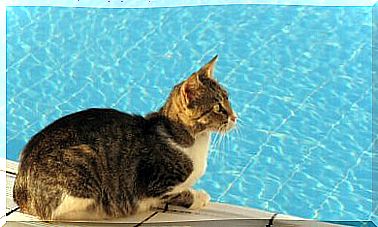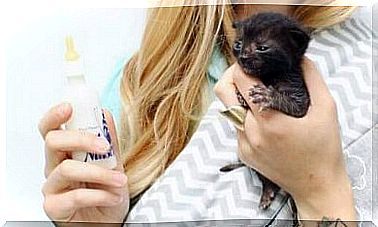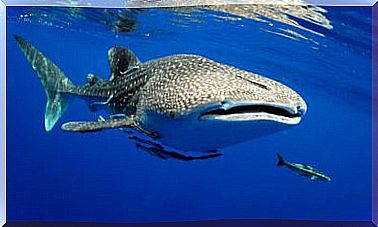5 Typical Diseases Of Caged Birds
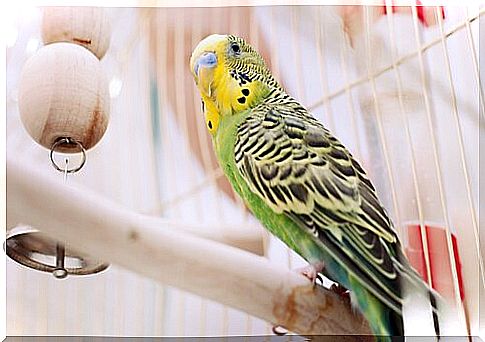
Animals were not born to live in captivity, locked up and kept behind bars, deprived of their freedom. Although many people breed birds that have become accustomed to being in a cage all their lives, it is also true that their organisms rebel against this unnatural situation. If you add to this the lack of adequate care, it is normal that they can suffer from various diseases, both physical and mental. For this reason, we have dedicated an article to the 5 typical diseases of birds living in cages.
What diseases affect caged birds?
If you have domestic flights in your home, it is for their sake that you know what possible diseases they can suffer from. Some problems can be triggered by climatic situations, others are due to poor or inadequate care. Furthermore, loneliness or stress can also negatively affect the health of your feathered friends. Let’s see what are the diseases that most often affect caged birds:
1. False wetsuit
Many times, birds are taken to places far away from their natural habitat and, for this reason, are exposed to sudden climate changes. Unfortunately, however, their organisms continue to “think” that they are still in their original ecosystem and behave accordingly.
When the bird lives in a warmer area, or if the house is too hot, this animal will change its feathers more times than normal. How come? It is a natural way to regulate body temperature.
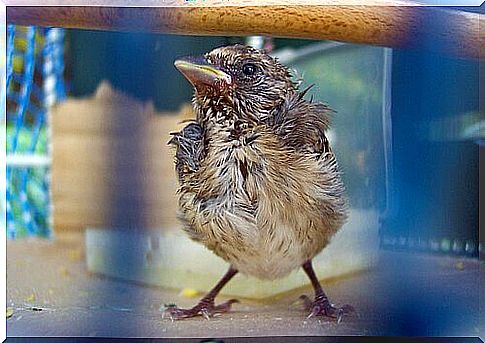
The problem is that this false molt represents great physical wear and tear on the bird. His natural cycle is altered and could even lead to his death. To avoid this, we advise you to place it in a cool place where there is natural sun and shade.
2. Psittacosis
Also called ornithosis , it is a highly contagious infectious disease that affects birds and is caused by a bacteria or, chlamydia psittaci . Any bird can carry the infectious agent in its feathers, on its tissues and in its feces.
Ornithosis is most common in turkeys, ducks and pigeons, although it also affects canaries – where it is not fatal – and can be transmitted to people (zoonoses) and other domestic animals. Symptoms of the disease are: bulging belly, lack of appetite, greenish stools and breathing problems.
3. Stress
It is one of the typical diseases of birds kept in cages, more frequent in those specimens that were not born in captivity. The fact of moving from moving freely to being in a small environment, often shared with many other birds, is undoubtedly traumatic for the animal.
One of the ways to tell if a bird is stressed is to analyze its behavior: it will start scratching, pecking and self-harming as an “escape” to reduce its accumulated anxiety.
4. Follicular cysts
These are bumps that appear anywhere on the animal’s body, although they are more common under the wings. They require the intervention of a veterinarian to be surgically removed.
Cysts appear when the feathers, instead of being born outward, for some reason, retract. This is common in those dense-plumed birds such as the parrot or canary.
5. Parasites
While not a very common problem in captive birds, by the time a new bird arrives home and enters the cage, it can already have internal or external parasites. It is possible that it infects its cage ‘mates’.

In the case of external parasites, these live on the skin or in the feathers. On the contrary, the internal ones like to settle in the intestines, in the blood or under the skin. The main symptoms of the proliferation of these can be: anorexia, lethargy, diarrhea, abdominal distension, weight loss, the presence of worms in the stool and weakness in the wings.
In order to determine if your bird is suffering from a parasite attack, it is necessary to take a stool sample and take it to the vet. Another option is to have your feathered friend tested for blood. Once the diagnosis is confirmed, the professional will advise you on the most appropriate treatment.


